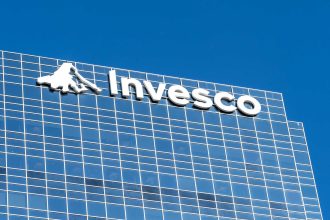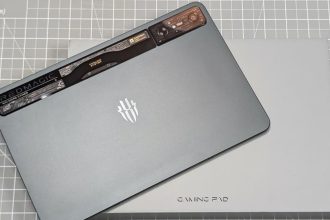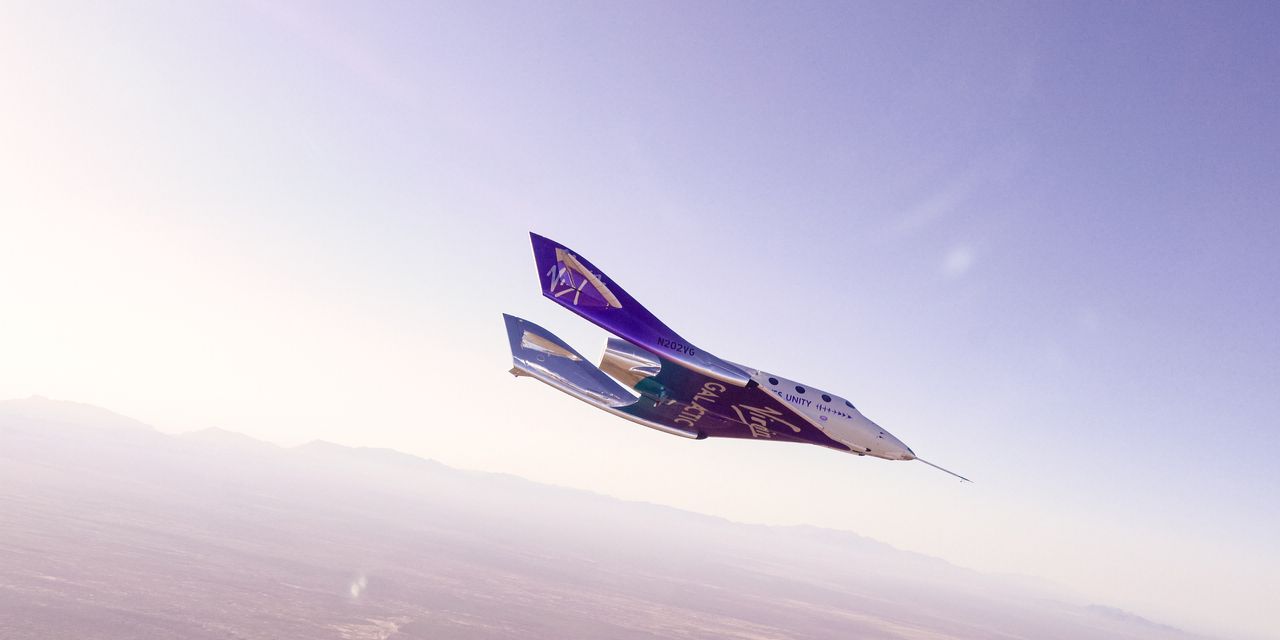It’s a big day for
Virgin Galactic.
Galactic 01, the company’s first commercial flight, is hours away from takeoff. Stock in the space tourism start-up is higher in early trading Thursday. It might not stay that way. The stock market often “buys the rumor and sells the news.” That’s what happened last time.
A three-person crew from the Italian Air Force and the National Research Council of Italy will take a 90-minute flight aboard the spacecraft VSS Unity, conducting a series of suborbital science experiments.
A double-hulled mother ship will take the Galactic spacecraft to about 45,000 feet before dropping it. Unity then lights its engine and accelerates to about Mach 3, or three times the speed of sound, traveling about 50 miles above the surface of the Earth. After passengers experience weightlessness, the ship glides back to Spaceport America in New Mexico.
A livestream of the flight goes live at 11 a.m. Eastern time and can be viewed here.
It’s an exciting event and investors are optimistic.
Virgin Galactic
(ticker: SPCE) shares were up 3.8% at $4.90, in premarket trading while
S&P 500
and
Dow Jones Industrial Average
futures both rose about 0.2%.
Early gains put shares up about $1.50, or 45%, over the past month. A similar pattern emerged when Virgin Galactic founder Richard Branson went to the edge of space almost two years ago in July 2021. Virgin Galactic shares rose 40%, from about $35 to $45 a share, the month headed into the flight.
The gains didn’t last though. Shares closed below $35 just three days after the flight. The stock market is forward-looking and good news can be reflected in a stock price ahead of an expected event.
There is no guarantee history repeats itself, but a post-flight selloff is the risk for Galactic shareholders this time.
Virgin Galactic stock has declined about 90% since Branson flew. A series of regulatory and equipment-related delays have pushed out the start of commercial service much further than expected. And higher interest rates, which make funding start-up companies more expensive, also have sapped some investor enthusiasm.
In the long run, earnings and cash flow will determine how Virgin Galactic stock trades. In the short run, investors should watch out for a stock dip, even with a successful first flight.
With the start of service, Wall Street projects about $12 million in 2023 revenue. Positive earnings and free cash flow aren’t projected until the end of the decade when annual sales reach roughly $700 million. Analysts also project Virgin Galactic will spend roughly $1 billion between now and the end of the decade before the business becomes self-sustaining.
Write to Al Root at [email protected]
Read the full article here




